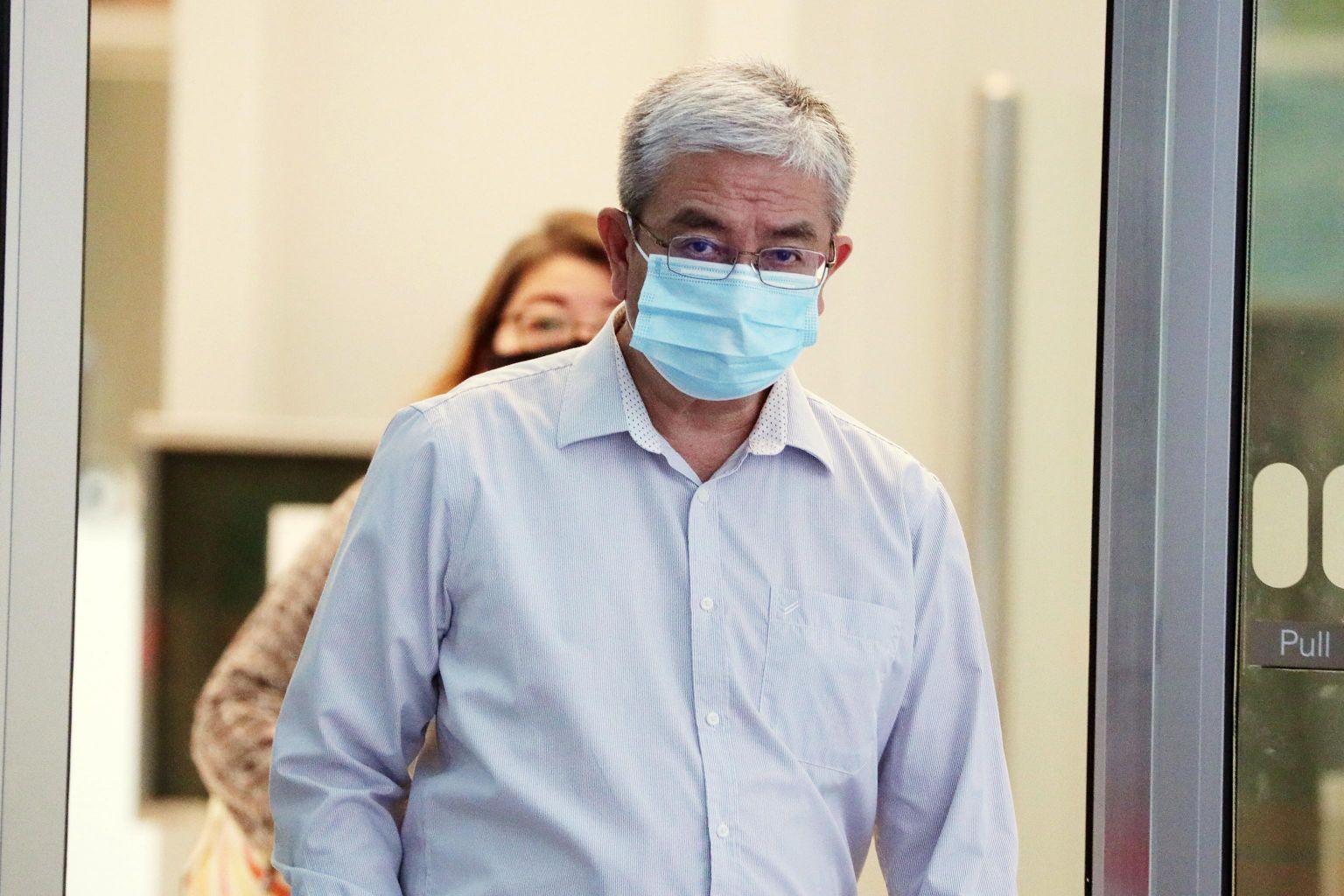Company director used false documents of fictitious transactions to cheat banks of over $10m
Sign up now: Get ST's newsletters delivered to your inbox

So Seow Tiong submitted fraudulent documents to the banks to apply for trade financing on 75 occasions.
ST PHOTO: KELVIN CHNG
Follow topic:
SINGAPORE - Over nearly five years, a director of a now-dissolved company duped five banks into disbursing more than $10 million for transactions that never took place.
So Seow Tiong, 61, pleaded guilty on Tuesday (Sept 14) to 25 cheating charges.
Another 50 similar charges will be taken into consideration by Senior District Judge Bala Reddy during sentencing on Thursday (Sept 16).
So's offences involved using fraudulent documents to apply for trade financing from the victimised banks between 2007 and 2011.
The banks are: Chang Hwa Commercial Bank, United Overseas Bank, OCBC Bank, Maybank and ABN Amro Bank.
At the time, So was the director of electronics manufacturing company SPE Technology (Singapore) and held a 38 per cent shareholding stake in it. The company was dissolved on Jan 24, 2015.
He also managed FSL Business Enterprise (Singapore), a company which sold electronic components, even though he was not its director.
So had authority over the use of FSL's funds and would give instructions to its then-director, Ms Quek Swee Wah, who had no say in the company's business.
Accounting and Corporate Regulatory Authority records show that FSL has since ceased business, with Ms Quek currently being its only shareholder.
Between March 27, 2007 and Jan 11, 2011, So instructed FSL to prepare 75 invoices and corresponding delivery orders to reflect SPE Technology's purported purchases of various items from it.
He also took steps to make the documents look authentic, such as instructing Ms Quek to sign them and ensuring that the invoices were stamped.
So submitted the fraudulent documents to the banks to apply for trade financing on 75 occasions.
After FSL received the funds from the banks, So got the company to transfer the money to SPE Technology.
He then made SPE Technology's accounting records falsely reflect that the supposed purchases had been cancelled.
So also got Ms Quek to sign on documents purportedly issued by FSL stating that the "goods" had been supposedly returned to it.
In all, the banks disbursed about $3.8 million and about US$4.8 million (S$6.9 million) based on the fraudulent applications.
The sums were used to cover operational expenses and settle debts, the court heard.
So's offences were uncovered after the Commercial Affairs Department (CAD) received a complaint on Aug 1, 2012 from SPE Technology's liquidators about the company obtaining trade financing from banks using fictitious purchases.
But the money disbursed by the banks was repaid before the CAD commenced investigations.
Ms Quek was fined $5,000 last year for her involvement in So's offences.
For each charge of cheating and dishonestly inducing another person to deliver property, offenders can be jailed for up to 10 years and fined.

